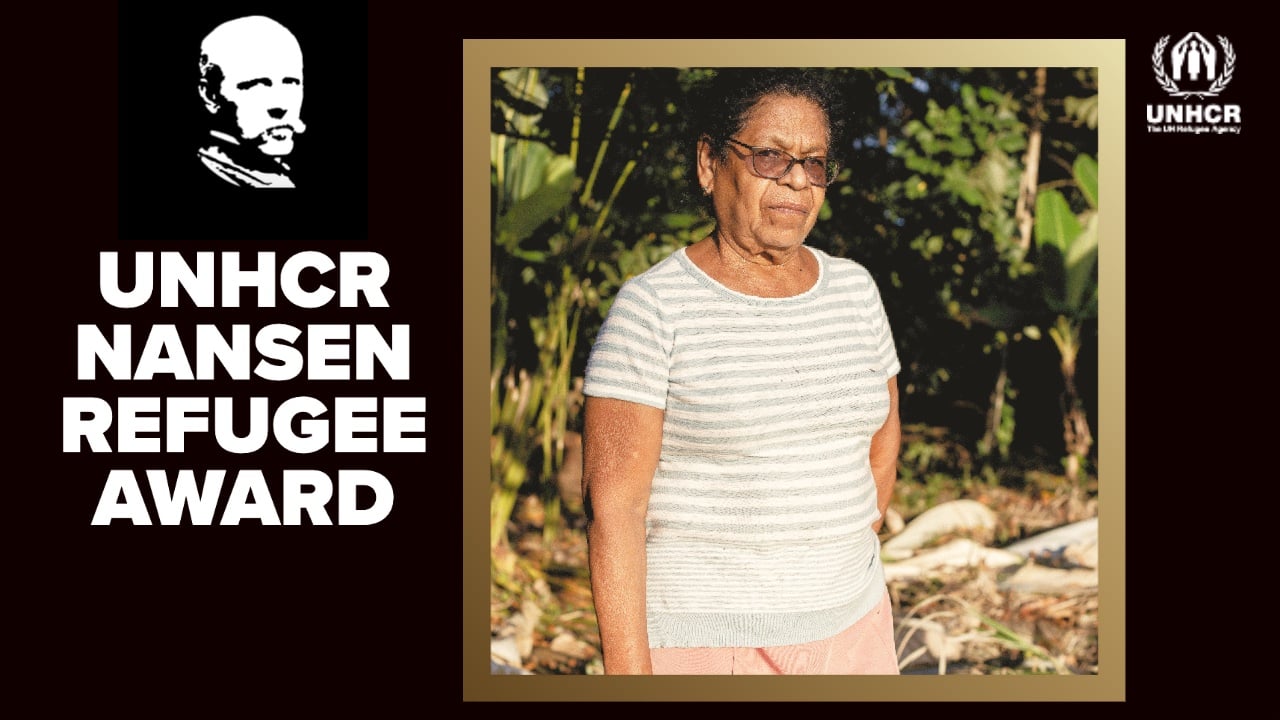UNHCR self-reliance programme helps empower Ivoirian refugee
UNHCR self-reliance programme helps empower Ivoirian refugee

JAKARTA, Indonesia, March 30 (UNHCR) - Ouattara Madoussou flew out of Jakarta for a new life in Canada last month, but the refugee from Côte d'Ivoire plans to maintain a strong link with Indonesia - through the internet.
After fleeing conflict in her homeland in 2005 and arriving in Indonesia by boat later that year, Ouattara patiently built up a business teaching French to Indonesian students through electronic-learning.
And the 24-year-old credits the UN refugee agency for giving her the skills and the courage to launch the venture in the first place. "The UNHCR Self-Reliance Programme helped me to continue with my business," she stressed.
Ouattara was in terrible emotional shape on arriving in Indonesia, after her parents and two brothers were killed and her house burned down in the civil strife in Côte d'Ivoire. But her life started to improve when she was granted refugee status in 2007.
Around the time she first started receiving aid from the UN refugee agency, the Ivoirian woman paid a fortuitous visit to the French Cultural Centre in Jakarta, where she joined the library. It became a part of her life - a source of books and a place to meet young Indonesians keen to learn French.
She soon agreed to give language lessons to her new friends, using books that she borrowed from the Centre. "I asked Ouattara to teach me French privately and she accepted," recalled Marina, who became one of her first students. "I was very happy and learned French quickly with her guidance. Then, I asked my other friends to join the class," she added.
Ouattara started feeling good about life again. "I was empowered and could use my skills to share something with others," she said. But as the number of students grew, she began finding it a struggle to cope. That's when she thought of e-learning.
She bought a laptop computer and then submitted her proposal for an online French-language course to UNHCR's self-reliance programme. This was to support her application for a loan to buy a modem, "so that I could run the e-learning course from my boarding house."
The self-reliance programme was initiated in 2007 as an innovative way to counteract the difficulties refugees face in not being able to work legally in Indonesia. It functions as a training programme to allow refugees to develop new skills. "It also encourages refugees and local communities to share the view that they belong to one community, and can help each other," explained Robert Ashe, UNHCR's Jakarta-based regional representative.
Ouattara was an ideal candidate for assistance and UNHCR's implementing partner, Church World Service (CWS), agreed to give her a loan. "She was so optimistic, and it was nice to see such commitment", said John Simbolon, a programme officer at CWS.
With her modem, Ouattara was able to launch the e-learning programme. "Due to the different ages and levels of knowledge of my students, the course was divided into three levels: basic, intermediate and advanced," she said. The students sit written and oral tests, using the skype software.
By the time she left for resettlement in Montreal, Ouattara had 43 Indonesian students. Most of them will continue to subscribe to her e-learning course when it is up and running again from Canada. But she does not plan to take on new students, because she wants to go to university, study human rights law and one day help other refugees stuck in limbo.
"I am grateful to God for being given this opportunity because it was not an easy life as a refugee. My Indonesian students are very kind and they never look at me as a refugee, but they consider that I am like their sister."
By Anita Restu in Jakarta, Indonesia








